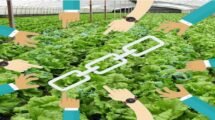The use of AI’s predictive analytics rubber in the value chain would be a game changer.
According to Saji Gopinath, Vice-Chancellor of Kerala University of Digital Sciences, Innovation, and Technology, the implementation of artificial intelligence (AI) in the rubber value chain would be a game changer in the near future, and the sector may generate greater value through predictive analytics.
The active use of data transformation technologies has resulted in new business models, new goods and services with increased usefulness, and new management culture.
During the weekend’s Indian Rubber Meet, the Vice-Chancellor spoke on ‘Efficient Use of Artificial Intelligence and Block Chain Technology in Rubber Marketing.’
Also Read | Thailand rubber plantation ‘leaf fall disease’ worries Indian growers.
The impact of the Russia-Ukraine conflict
According to John Baffes, Senior Agricultural Economist at the World Bank’s Development Economics Prospects Group, non-energy prices are likely to jump 20% in 2022, with the greatest increase in commodities where Russia or Ukraine are important exporters.
He went on to say that the forecast is dependent on the length of the conflict and the intensity of interruptions to commodities shipments.
‘The shock of the Ukrainian conflict, combined with the epidemic, has produced supply interruptions in a number of goods, including oil, food, and fertilizers. Most prices are projected to rise considerably in the current fiscal year and in the medium future,’ he stated.
According to the most recent predictions, the world economy would grow at 2.9 percent in 2022, down from 4.1 percent in January 2022. On the other hand, worldwide inflation has been revised upwards for both 2022 and 2023, he noted.
Also Read | INFAM knocks courtroom looking for MSP for rubber crop.
China’s lockdown impact
‘China’s lockdown might potentially have an impact on both supply and demand for industrial goods.’ Policymakers should prioritize assisting poorer households facing rising food and energy costs. They can, in the long run, stimulate energy efficiency improvements, allow investment in new zero-carbon energy sources, and promote more efficient food production,’ he added.


















Add Comment